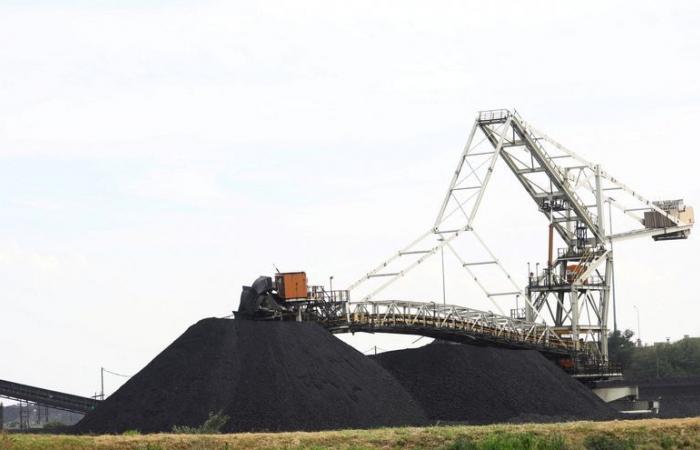European politicians and diplomats spoke to civil servants and unions in South Africa’s coal belt on Wednesday to try to persuade them that the shift from fossil fuels to renewable energy should not leave them destitute.
Discussions in Mpumalanga province, where rich countries are funding the energy transition, aim to overcome resistance from communities who fear economic collapse.
In Emalahleni, “the place of coal” in Zulu, union leaders were openly skeptical of talk suggesting job losses could be offset by a boom in climate-friendly energy.
“I don’t think one meeting will persuade them,” Elsebeth Krone, Denmark’s ambassador, told Reuters. Denmark is one of the Western countries funding an $11.6 billion program to help one of the world’s 15 biggest greenhouse gas emitters switch to cleaner energy sources.
“Today is just one example of how this dialogue can be conducted.
Germany, Great Britain, France, the European Union, the United States, Canada, Spain, the Netherlands and Switzerland also finance this program whose ultimate objective is to help the South Africa to abandon coal in favor of abundant solar and wind energy.
Africa’s most industrialized country emits more greenhouse gases than Britain, France or Italy due to its reliance on coal for energy, according to watchdog Climate Transparency. electricity production.
“The coal industry and its jobs are not sustainable,” French Ambassador to South Africa David Martinon told delegates in the town surrounded by smokestacks and cooling towers, adding that France was about to grant a second loan.
“Coal will be a thing of the past.
Yet the number of jobs in the coal sector stands at more than 90,000, not counting the thousands of traders who live around the mines and power plants.
“When all the speeches have been made, we will have to see the practical terms… a real commitment to leaving no one behind,” Collen Mahlangu, a leader of the National Union of Metalworkers of South Africa (NUMSA) told Reuters ), based in Mpumalanga.
In an interview with Reuters, Stine Leth Rasmussen, deputy director general of the Danish Energy Agency, noted that the Danish port of Esbjerg, which historically supported low-skilled manual oil-related jobs, was now a major center of offshore wind power.
If South Africa can become the leader in renewable energy on the continent, it could serve as a model for other countries and say: “It’s possible,” she said.






